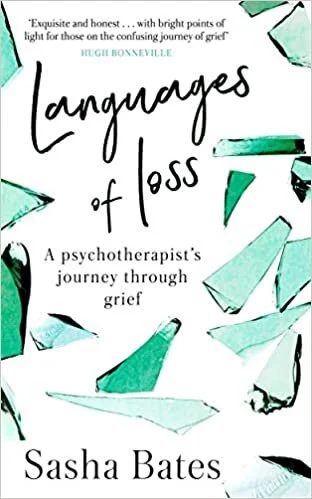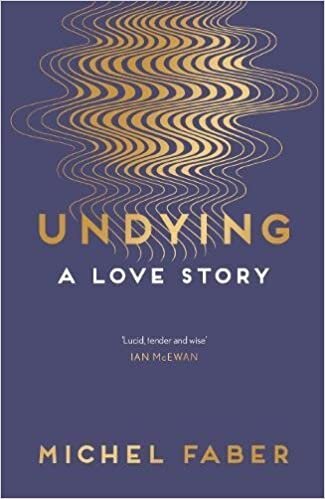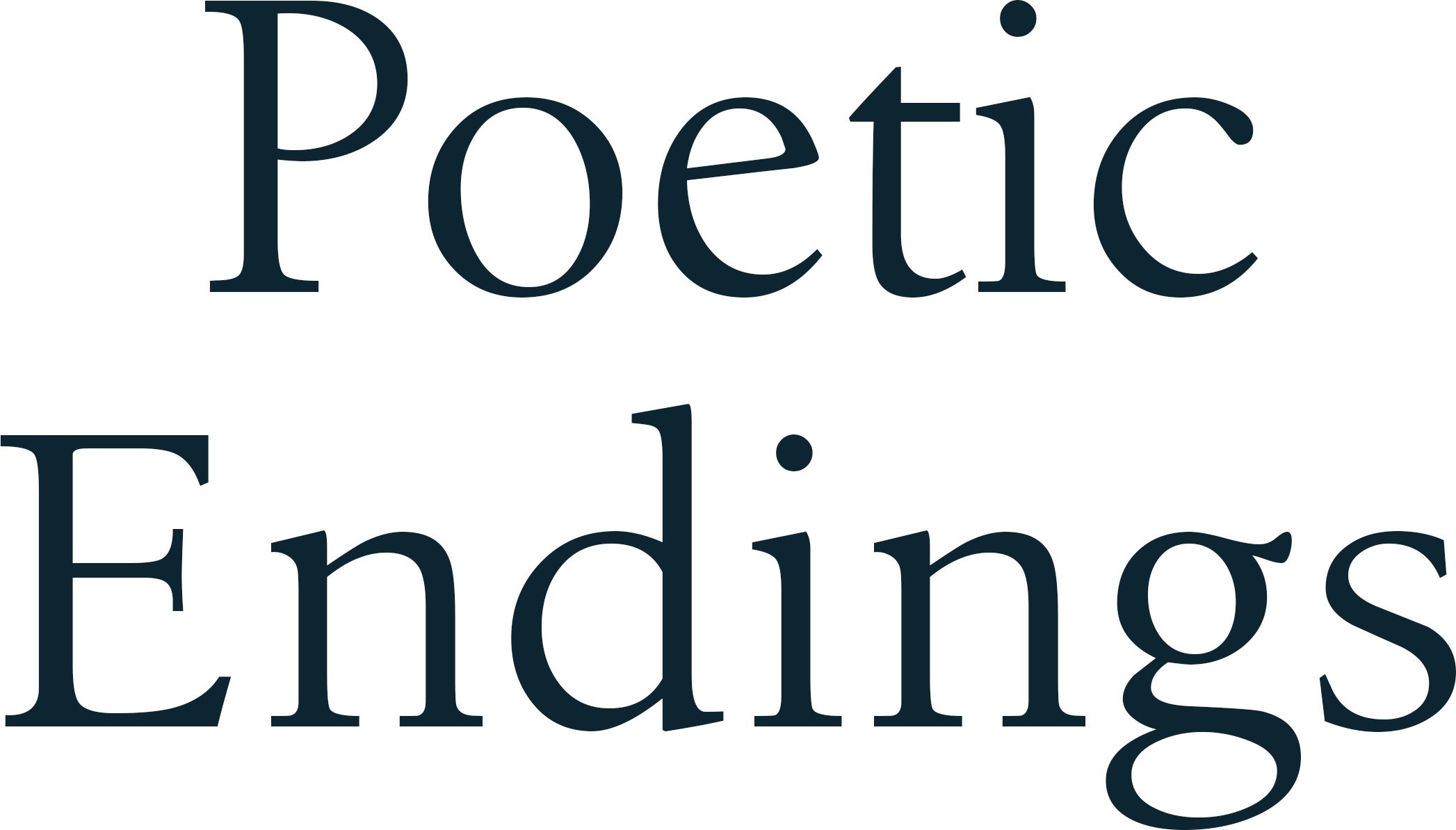
It's Ok That You're Not Ok: Meeting Grief and Loss in a Culture That Doesn't Understand by Megan Devine
In 2009, on a beautiful sunny day, Megan Devine witnessed the accidental drowning of her beloved partner Matt. "All my professional experience as a therapist felt meaningless," she writes. "Grief literature is loaded with well-intended advice that can actually worsen and extend someone's pain. We just don't know how to handle loss in our culture." Megan has dedicated herself to helping people find a new way to deal with loss that honors our experience without trying to "solve" grief.
With It's OK That You're Not OK, Megan reveals a path for navigating grief and loss not by trying to escape it, but by learning to live inside of it with more grace and strength. Through stories, research, life tips, and mindfulness-based practices, she offers a unique guide through an experience we all must face. Here she debunks the culturally prescribed goal of returning to a normal, "happy" life, replacing it with the skills and tools to help us experience and witness the pain of loss in ourselves and others--so we may meet our grief knowing it to be a natural step in the greater journey of love.

Languages of Loss: A psychotherapist's journey through grief by Sasha Bates
Plunged unexpectedly into widowhood at just 49 years old, psychotherapist Sasha Bates describes in searing honesty the agonisingly raw feelings unleashed by the loss of her husband and best friend, Bill. At the same time, she attempts to keep her therapist hat in place and create some perspective from psycho-analytic theory. From the depths of her confusion she gropes for ways to manage and bear the pain - by looking back at all that she has learnt from psychotherapeutic research, and from accepted grief theories, to help her make sense of her altered reality.
Languages of Loss starts a necessary and overdue conversation about death and loss. It breaks down taboos and tries to find humour and light amidst the depressing, bewildering reality. It is an essential companion to help support readers through the agony of those early months, giving permission for all the feelings, and offering various methods of living with them.This book's overriding message is that everyone's experience of grief is different, but knowing more about the theory, and learning a new vocabulary, while not necessarily easing the grief, can help you feel less alone, and at some point enable you to reflect back and see how far you have come.

We All Know How This Ends: Lessons about life and living from working with death and dying by Anna Lyons and Louise Winter
End-of-life doula Anna Lyons and funeral director Louise Winter have joined forces to share a collection of the heartbreaking, surprising and uplifting stories of the ordinary and extraordinary lives they encounter every single day.
From working with the living, the dying, the dead and the grieving, Anna and Louise reveal the lessons they've learned about life, death, love and loss. Together they've created a profound but practical guide to rethinking the one thing that's guaranteed to happen to us all. We are all going to die, and that's ok. Let's talk about it.
This is a book about life and living, as much as it's a book about death and dying. It's a reflection on the beauties, blessings and tragedies of life, the exquisite agony and ecstasy of being alive, and the fragility of everything we hold dear. It's as simple and as complicated as that.

Gratitude by Oliver Sacks
Oliver Sacks died in August 2015 at his home in Greenwich Village, surrounded by his close friends and family. He was 82. He spent his final days doing what he loved: playing the piano, swimming, enjoying smoked salmon – and writing . . .
As Dr Sacks looked back over his long, adventurous life his final thoughts were of gratitude. In a series of remarkable, beautifully written and uplifting meditations, in Gratitude Dr Sacks reflects on and gives thanks for a life well lived, and expresses his thoughts on growing old, facing terminal cancer and reaching the end.
I cannot pretend I am without fear. But my predominant feeling is one of gratitude. I have loved and been loved; I have been given much and I have given something in return; I have read and travelled and thought and written. I have had an intercourse with the world, the special intercourse of writers and readers. Above all, I have been a sentient being, a thinking animal, on this beautiful planet, and that in itself has been an enormous privilege and adventure.

My Wife Said You May Want to Marry Me: A Memoir by Jason Rosenthal
On March 3, 2017, Amy Krouse Rosenthal penned an op-ed piece for the New York Times Modern Love column You May Want to Marry My Husband. It appeared ten days before her death from ovarian cancer. A heartbreaking, wry, brutally honest, and creative play on a personal ad in which a dying wife encouraged her husband to go on and find happiness after her demise the column quickly went viral, reaching more than five million people worldwide.
In My Wife Said You May Want to Marry Me, Jason describes what came next: his commitment to respecting Amy s wish, even as he struggled with her loss. Surveying his life before, with, and after Amy, Jason ruminates on love, the pain of watching a loved one suffer, and what it means to heal how he and their three children, despite their profound sorrow, went on. Jason s emotional journey offers insights on dying and death and the excruciating pain of losing a soulmate, and illuminates the lessons he learned.
As he reflects on Amy s gift to him a fresh start to fill his empty space with a new story Jason describes how he continues to honor Amy s life and her last wish, and how he seeks to appreciate every day and live in the moment while trying to help others coping with loss. My Wife Said You May Want to Marry Me is the poignant, unreserved, and inspiring story of a great love, the aftermath of a marriage ended too soon, and how a surviving partner eventually found a new perspective on life’s joys in the wake of tremendous loss.

The Dead Moms Club: A Memoir about Death, Grief, and Surviving the Mother of All Losses by Kate Spencer
Kate Spencer lost her mom to cancer when she was 27. In The Dead Moms Club, she walks readers through her experience of stumbling through grief and loss, and helps them to get through it, too. This isn't a weepy, sentimental story, but rather a frank, up-front look at what it means to go through gruesome grief and come out on the other side.
An empathetic read, The Dead Moms Club covers how losing her mother changed nearly everything in her life: both men and women readers who have lost parents or experienced grief of this magnitude will be comforted and consoled. Spencer even concludes each chapter with a cheeky but useful tip for readers (like the "It's None of Your Business Card" to copy and hand out to nosy strangers asking about your passed loved one).

Undying: A Love Story by Michel Faber
How can you say goodbye to the love of your life?
In Undying Michel Faber honours the memory of his wife, who died after a six-year battle with cancer. Bright, tragic and candid, these poems are an exceptional chronicle of what it means to find the love of your life. And what it is like to have to say goodbye.
All I can do, in what remains of my brief time,
is mention, to whoever cares to listen,
that a woman once existed, who was kind
and beautiful and brave, and I will not forget
how the world was altered, beyond recognition,
when we met.

The Book of Love & Loss: Poems for Today by June Hall
At times of loss and bereavement, it's well established those who are left reach for music and poetry- and the music of poetry. Unlike other collections The Book of Love and Loss draws only on contemporary voices and is intended in future to form not just a fine collection but also to be the best-selling source book for funerals, memorials and other special occasions.

The Year of Magical Thinking by Joan Didion
From one of America's iconic writers, a portrait of a marriage and a life – in good times and bad – that will speak to anyone who has ever loved a husband or wife or child. A stunning book of electric honesty and passion.
Several days before Christmas 2003, John Gregory Dunne and Joan Didion saw their only daughter, Quintana, fall ill. At first they thought it was flu, then pneumonia, then complete sceptic shock. She was put into an induced coma and placed on life support. Days later – the night before New Year’s Eve –the Dunnes were just sitting down to dinner after visiting the hospital when John suffered a massive and fatal coronary. In a second, this close, symbiotic partnership of 40 years was over. Four weeks later, their daughter pulled through. Two months after that, arriving at LA airport, she collapsed and underwent six hours of brain surgery at UCLA Medical Centre to relieve a massive hematoma.
This powerful book is Didion’s ‘attempt to make sense of the weeks and then months that cut loose any fixed idea I ever had about death, about illness … about marriage and children and memory … about the shallowness of sanity, about life itself’. The result is an exploration of an intensely personal yet universal experience: a portrait of a marriage, and a life, in good times and bad.

Saying Goodbye: A Personal Story of Baby Loss & 90 Days to Walk You Through Grief by Zoe Clark-Coates
Losing a baby, whether through miscarriage, stillbirth or neonatal death, leaves so many parents lost in grief and full of unanswered questions.
Zoë Clark-Coates, and her husband Andy, have personally faced the loss of five babies. Out of their experiences came the charity The Mariposa Trust (more often known by its leading division Saying Goodbye), offering support to thousands of grieving parents and relatives around the world each week.










